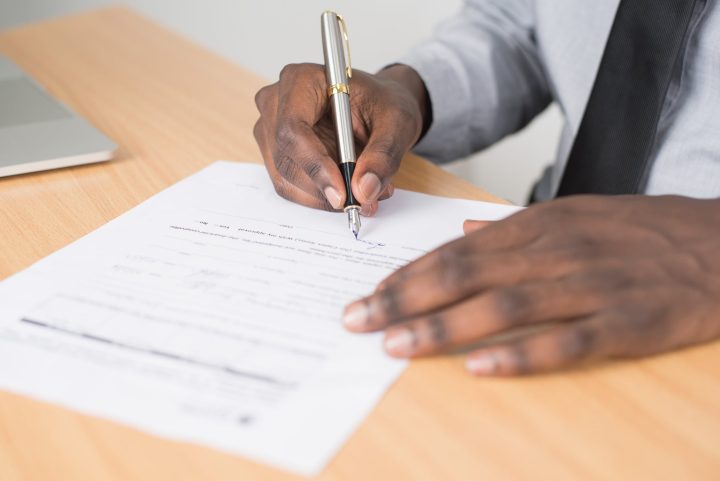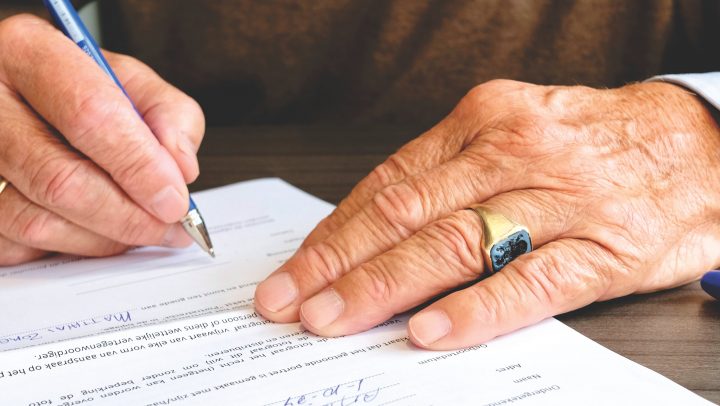Estates need employer identification numbers (EIN) for a number of different reasons. If you’re trying to apply for an estate tax ID (EIN) number online or by phone, mail or fax, you may have a lot of questions, ranging from, “How do I establish an estate tax ID number?” to “Do I need a tax ID number to open an estate account?” Keep reading to get answers to those questions and others and to learn more about the process.
Ready to apply already?

Steps to getting an Estate Tax ID (EIN) Number
- Prepare Business Owner Information
- Apply for an Estate Tax ID (EIN) Number Online
- Apply for an Estate Tax ID (EIN) Number by Phone, Mail or Fax
- How Long Does It Take to Get a Tax ID Number for an Estate?
- Do I Need a Tax ID Number to Open an Estate Account?
- How Do I Establish an Estate Tax ID Number?
1. Prepare Business Owner Information
To ensure your application process goes smoothly, you need to prepare business owner information, or, to be more specific, you need to prepare information related to the estate. You need the name and Social Security Number of the deceased person, and you also need the name of the executor or trustee, their Social Security Number, and their contact details. If the responsible party or the deceased individual doesn’t have a Social Security Number (SSN), you usually need to use their Individual Taxpayer Identification Number (ITIN).
2. Apply for an Estate Tax ID (EIN) Number Online
The fastest and easiest option is to apply for an estate tax ID (EIN) number online. To qualify to use the online application, you must be based in the United States, and the estate must be in the United States. This rule also applies to corporations, partnerships and other entities that are applying for an EIN.
To ensure the process goes smoothly, gather all your details before starting the online application. Also, consider getting professional help – that eliminates hassles and speeds up approval times.
To apply for an Estate tax ID (EIN) number online, you want to have the following information on hand:
- Identifying information for both the deceased individual and executor including:
- Legal Name
- Social Security Number
- Mailing Address
- Contact Phone Number
3. Apply for an Estate Tax ID (EIN) Number by Phone, Mail or Fax
You can also apply for an estate tax ID (EIN) number by phone, mail or fax. Generally, only international applicants can apply over the phone. Applying for an EIN through the mail or over fax requires the same form. The difference is whether you mail or fax the form. Both of these options are time-consuming, and they can add unnecessary delays to your process.
When mailing, you have to print out the form, manually fill out the form, drive to the post office, and potentially wait in a line. Then, you have to worry about the form getting lost in the mail. If any details are missing, you have to revisit the form and fix mistakes, adding time onto your project. Similarly, with a fax machine, you also have to find somewhere with a fax machine and slowly transmit the application.
4. How Long Does It Take to Get a Tax ID Number for an Estate?
Wondering how long does it take to get a tax ID number for an estate? Well, the good news is that the process can be fast. If you apply online, you can get the estate tax ID within an hour or less.
As explained above, there can be delays if you apply for the tax ID over a fax or through the mail. If you want the number as quickly as possible, you should apply online, and you should work with a service that can help you get through the process easily and quickly. That helps to ensure that you don’t forget to include any details and that you don’t face any unnecessary delays.
5. Do I Need a Tax ID Number to Open an Estate Account?
To open a bank account for an estate, you need an EIN as your tax ID number. This rule applies to all bank accounts, including investment accounts. Short for “Employer Identification Number,” an EIN is used by employers when they are filling out payroll tax forms and sending income tax payments to the government, but the number is also used in a variety of other situations.
Employers, sole proprietors, corporations, partnerships, estates, trusts, churches, government agencies, Indian tribal entities and even individuals can all apply for an EIN. Estates, in particular, need this number to report income earned by the estate to the government. If you have to file Form 1041 (U.S. Income Tax Return for Estates and Trusts), you need an EIN for the estate.
All deceased taxpayers have to file a final tax return with the Internal Revenue Service. Often, their next of kin can just fill out the tax return with the deceased’s income up to the date of their death, and they can use the deceased’s Social Security Number on the return just as they did when the deceased person was alive. However, depending on the makeup of the estate, the next of kin may have to file Form 1041 as well as other forms.
Essentially, after someone dies, all their property is owned by their estate. If anything in their estate (rental properties, savings accounts, investments, etc.) earns $600 or more after their death, Form 1041 needs to be filed on behalf of their estate. Again, you need an EIN to file this tax form. Failing to file the form or filing it late can lead to failure-to-file or failure-to-pay penalties.
6. How Do I Establish an Estate Tax ID Number?
To establish an estate tax ID number, you should start by gathering information related to the estate. If you are not the executor of the estate, make sure that you have their details and their permission to request the EIN. To learn more, this article provides a great review on “How to Apply for an EIN Number“.
The executor can also authorize a third-party designee to receive information about the EIN. If you plan to do that, you should also have their information ready when you start the application process. Then, complete the process online, and you should have your EIN in less than an hour. Once you have your EIN, you can use it to file tax returns, open bank accounts for the estate, and handle a range of probate-related tasks.






